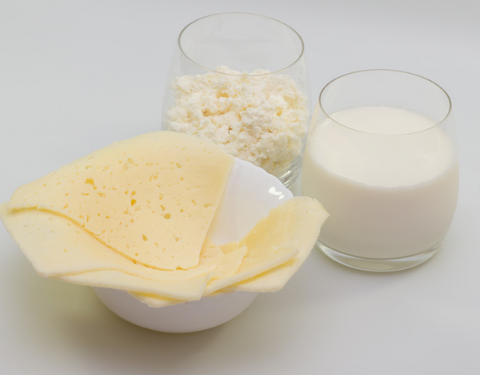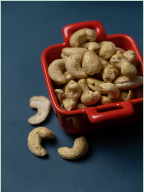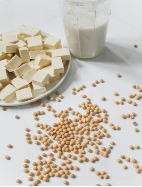Kormotech introducing Lean production management method.
Pet Valu releases second quarter results.
The new ultra-modern cat food factory will allow Purina to carry out its friendly and sustainable environmental goals using latest automation tools to decarbonize its operations and save on energy.
Vietnam, Singapore, Malaysia, Chile and Peru were some of the fastest growing pet food markets in the nations ringing the Pacific Ocean from 2016 to 2020. Pet ownership growth fueled that economic growth in some Pacific Rim nations, while dog and cat ownership rates stagnated in others.
Dog owners may be reticent to try a different brand of food, fearing gastrointestinal troubles for their dogs and carpets.
Can Dogs Eat Blackberries?

As summer marches towards its end, few fruits embody its warmth and freedom like blackberries. These delicious little morsels of flavor are everywhere right now, and their frequency will only increase as we get closer to autumn.
For people, blackberries are delightful ways to spice up pies, tarts, drinks, and more.
Fortunately, dogs can happily enjoy these treats alongside us! Blackberries are safe for dogs to eat!
Now, it’s time for us to dive into the topic even more!
Are Blackberries Safe for Dogs?
The short answer is yes! Blackberries are safe for dogs!
However, before you go and buy a bushel of berries for your pup to chow down on, be sure to follow a few basic safety tips:
Blackberry Nutrition Facts
As far as treats go, blackberries are far from the worst. These delicious bites of flavor have very little sugar and few calories. This means that they can be given with a bit more frequency than other goodies, like peaches or cheesecake.
Can Dogs Have Blackberries? The FAQ

To make things easier, we’ve rounded up some of the most commonly asked questions about giving blackberries to dogs.
Scroll on to learn more!
How Many Blackberries Can I Give to My Dog?
Like any treat, blackberries should be given in moderation. It’s hard to overdo it on blackberries, but even a bit too many can cause an upset stomach.
You don’t need many berries, and 2–6 individual berries will be enough for most dogs. Going over this limit may upset your dog’s stomach.
Which Berries Are Poisonous to Dogs?

In addition to blackberries, there are many other kinds of berries, but not all are suitable for dogs!
While humans may enjoy these delicious, juicy snacks, dogs can’t handle all of them. There are some berries that dogs should avoid, as they can cause symptoms ranging from upset stomachs to death.
Unsafe berries include:
- Baneberries
- Cherries
- Holly berries
- Juniper berries
- Pokeberries (alternatively spelled “poke berries”)
- Mistletoe
You’ll also want to prevent your pups from eating any wild berries you may find. There are a few different reasons for this, and the most obvious is that you’ll have a hard time identifying these wild berries.
However, you also have no way of knowing what these wild berries have been treated with. Many people will treat their yards with insecticides and weedkillers, and those toxins will leach into whatever grows in the area. If your pup happens to eat a berry from one of these lawns, those same toxins will end up in their tummy!
How to Serve Your Dog Blackberries
Of course, you can give your dog plain blackberries. Some dogs aren’t usually picky, and they’ll love the unique treat. There are, however, some other ways to give your dog a taste of blackberry.
Blackberry Pupsicle
Keeping your pup cool doesn’t have to be boring!
If you’re looking for a blackberry-packed way to keep your pup cool this summer, try out this amazing popsicle recipe.
To make these blackberry popsicles, you’ll need:
- A blender or food processor
- A freezer
- An ice tray or popsicle mold
- ½ cup of blackberries
- 2 sliced frozen bananas
- ½ cup creamy peanut butter
- ½ cup plain yogurt
Once your supplies are ready, follow along!
- Add blackberries to the blender or food processor and process them until they’re smooth. When this is done, empty the mix into a bowl and set it aside.
- After cleaning out the pitcher, add the bananas, peanut butter, and yogurt. Blend the ingredients until they are smooth. The ideal texture will resemble soft serve ice cream.
- Add the blackberry purée to the mixture and mix.
- Pour the resultant mixture into trays or molds, then freeze them for four hours or until solid.
Once they’re made, these delightful popsicle bites will last up to a month in the freezer.
You can also buy some dog-safe treats at our online store. In addition to pre-packaged biscuits, The Dog Bakery is proud to offer plenty of homemade treats and custom dog cakes!

Can Dogs Drink Milk?
Dogs are mammals, which means they need their mother’s milk when they are puppies to grow big and strong. But what about when they’re older? Can dogs drink milk? What kind of milk can they drink? Is it even good for them?

In this guide, we’re covering everything you need to know about milk and your dog, answering your most-asked questions, and giving you recommendations for the safest ways to feed your dog a milky treat.
Is Milk Safe for Dogs?
Yes, most of the time. All types of milk are technically safe for your dog unless they are specifically allergic to one of the ingredients, but not all milk is good for your dog. Cow milk, the most common type of milk readily available in grocery stores and at restaurants, contains lactose, and complex, difficult-to-digest proteins. While most dogs do not have allergies or food sensitivities, dairy is one of the most common food sensitivities in dogs.
Because lactose can be difficult for dogs to digest, it’s not suggested that you include milk in their everyday diet, but a cube of cheese or a slurp of milk now and then won’t hurt them.

Goat milk, which we’ll cover more later, is typically the best type of milk to give to your dog since it lacks the complex proteins that make cow’s milk difficult to digest, but even that should be given sparingly, or as a dietary supplement.
Common Types of Milk
We’ve already explained that cow’s milk is safe, but not very good for dogs, but what about the other kinds of milk?
Before we dive into the different types of milk and whether they are safe for dogs, we have an important reminder about vegan milk alternatives: Many milk substitutes including soy milk, oat milk, coconut milk, etc., contain additional preservatives, sweeteners, and flavorings that are not good for your dog. Never give your dog flavored or sweetened milk.
|
Type of Milk |
Where’s It From? |
Common Uses |
Safe for Dogs? |
|
Cow |
 |
Drinking, creamer, cheese, ice cream, in recipes. |
Yes, occasionally. |
|
Goat |
 |
Cheese, drinking. |
Yes! |
|
Sheep |
 |
Cheese. |
Yes, in moderation. |
|
Oat |
 |
Drinking, creamer, in vegan recipes. |
Yes, in moderation when unsweetened. |
|
Almond |
 |
Drinking, creamer, in vegan recipes. |
No. See this blog for more information on dogs and nuts. |
|
Cashew |
 |
Drinking, creamer, in vegan recipes. |
Yes, very occasionally when unsweetened. |
|
Soy |
 |
Drinking, creamer, in vegan recipes. |
Yes, in moderation when unsweetened. |
|
Rice |
 |
Drinking, creamer, in vegan recipes. |
Yes, in moderation when unsweetened. |
|
Coconut |
 |
Drinking, creamer, in vegan recipes. |
Yes, in moderation when unsweetened. |
|
Hemp |
 |
Drinking, creamer, in vegan recipes. |
Yes, in moderation when unsweetened. |
Nutritional Value of Milk
Cow, goat, and sheep’s milk are all good sources of fat, protein, and essential vitamins, but because your dog should only be given milk products occasionally, they won’t benefit from these nutrients.
Goat milk is sometimes included in a dog’s diet as a nutritional supplement. Goat milk is slightly more digestible than cow’s milk and lower in fat than sheep milk, making it a sort of ‘happy medium’ choice. Goat milk also contains key probiotics that can help your dog’s digestion by promoting healthy gut flora. If you are interested in giving your dog goat milk, be sure to first consult with your vet. If approved by your vet, source the goat milk from a reputable pet store, or a reputable source online like The Honest Kitchen.
How Much Milk Can I Give My Dog?
Letting your dog drink pure milk isn’t a great idea, but if you do want to give them a little to moisten their food, keep it to a tablespoon or two. If you are adding goat milk to your dog’s food, follow the directions of your vet, or the instructions on the packaging of the goat’s milk you have purchased.
Can Dogs Drink Milk? The FAQ
More questions on your mind about dogs and milk? Here are all your questions beyond “can dogs drink milk” and answers to help you make an informed decision.
What Milk Is Best For Dogs?
Goat’s milk is widely considered the “best” milk for dogs. However, even goat’s milk should only be an occasional treat or dietary supplement, never a key source of nutrition.
What Happens If A Dog Drinks Milk?
Usually, nothing! Most dogs won’t have any problems after drinking a little milk, but some may experience symptoms of lactose intolerance like a stomach ache, diarrhea, gas, and discomfort.
Similarly, if your dog manages to drink a lot of milk (or eat too much of a puppuccino) they may have an upset stomach. If you are concerned, be sure to contact your veterinarian.
Can Dogs Drink Milk Every Day?
No. It’s not a good idea to give your dog milk or dairy products every day. Goat’s milk may be safe for daily use in moderation, but be sure to chat with your vet about whether your dog could benefit from the probiotics.
Can Dogs Drink Milk For Poison?
No! If your dog has ingested poison, you need to call your vet or an emergency vet immediately. Your dog needs medical attention right away, and there are no home remedies available. Milk does not work to neutralize toxins, nor is it an appropriate treatment option after a dog has come in contact with something toxic or poisonous.
What Can Dogs Drink Besides Water?
Water is best! Water is the only thing you should give your dog for basic hydration, but there are some other liquids that can safely be given to dogs in moderation including milk (as discussed here), low-sodium chicken, beef, or pork broth, and cucumber water!

Which Is Better? Warm Or Cold Milk For Dogs?
It makes no difference whether the milk you give your dog is hot or cold. Whether your dog prefers milk warmed or cold will depend on their preference.
Is It Good To Put Milk in Dog Food?
Sometimes. If your dog is in need of additional probiotics, your vet may recommend that you add goat’s milk to your dog’s food. Other types of milk should not be added to your dog’s food.
Baked goods and recipes made with milk should also be given to your dog in moderation, and not as a key source of nutrition or calories. These types of foods are not unsafe for dogs, but they do not provide the key nutrients your pup needs to be healthy, and can be unhealthy when not fed in moderation.
Can Dogs Drink Lactose-Free Milk?
In moderation. Cow’s milk with the lactose removed may still cause gastrointestinal issues for dairy intolerant dogs, but otherwise, it can be treated the same as you would regular cow’s milk; feed only occasionally as a treat.
Can Dogs Have Milk & Cereal?

No. Cereal contains carb-heavy grains, tons of added sugars, and chemical preservatives, flavorings, and colors. None of these ingredients are good for dogs and can make them quite sick, so no milk and cereal for Fido.
Best Ways to Give Your Dog Milk
If you’re looking for a fun way to share a dairy-licious treat with your pup, try one of these fun and creative options:
- Make a puppuccino
- Add goat’s milk to your dog’s food
- Give your pup a yak milk dog chew
Just venturing into the world of human food for your dog? Check out this list of vegetables dogs can safely eat, and absolutely love!



